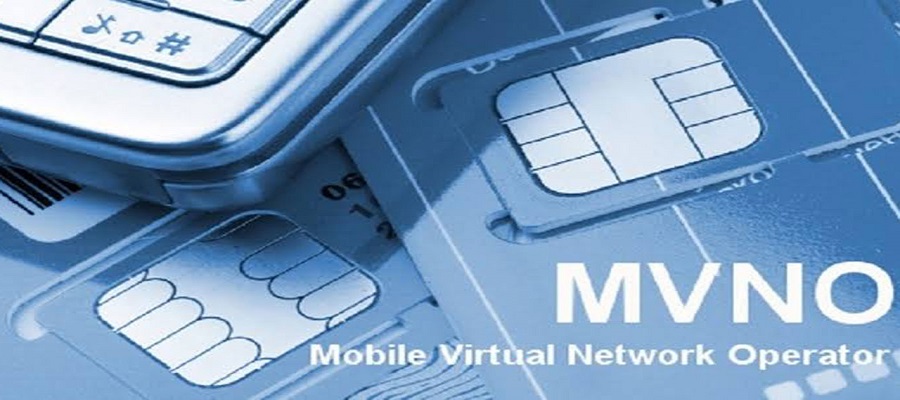Telecom
GSMA Highlights Key Trends Shaping the Future of Mobile

The GSMA has published its second annual ‘Global Mobile Trends’ report, which provides exclusive data and analysis on the key trends shaping the future of the mobile ecosystem.
Published at Mobile World Congress Americas being held in San Francisco this week, the 2017 edition of this flagship report series compiles data on mobile subscriber growth trends across both developed and emerging markets, plus insight on: device innovation beyond the smartphone; the evolution from 4G to 5G networks; industry financial performance and growth outlook; competition and convergence; and statistics for every region worldwide.
“Our latest Global Mobile Trends report provides a comprehensive view of the opportunities and challenges facing the mobile industry as we move into a new era of ubiquitous connectivity,” said Laxmi Akkaraju Chief Strategy Officer at the GSMA.
“Built on best-in-class GSMA Intelligence data and produced by our in-house team of industry analysts, today’s report maps out how future networks and operator business models are evolving within a rapidly shifting industry landscape.”
Key takeaways from the 2017 edition of the Global Mobile Trends: Connecting the next billion: Five billion people are now connected to mobile networks, representing two-thirds of the world’s population. However, growth is slowing; it took four years to move from 4 billion to 5 billion subscribers and connecting the next billion will take longer still. Meanwhile, smartphone and mobile broadband growth is driving mobile internet usage and engagement, and new form factors are emerging beyond the smartphone.
Rapid 4G growth: Industry excitement around 5G overlooks the fact that 4G still has plenty of headroom for future growth. 4G is forecast to account for two-thirds of global mobile connections by 2025 (up from around a quarter today), driven by increasing 4G adoption over this period in major emerging markets such as Brazil, India and Indonesia.
The pathway to 5G: Early 5G deployments will likely target high-bandwidth applications as an extension to 4G, notably 8K ultra-HD video and VR/AR apps, although the US will focus initially on using 5G as a last-mile technology for home broadband. South Korea and Japan are likely to be among the first 5G markets, showcasing the technology at the Olympics in 2018 and 2020, respectively.
However, on a global basis, it’s expected that 5G networks will be rolled out at a slower rate than 4G and adoption is therefore also likely to be slower.
Transforming the network: A paradigm shift in network architecture is required to support the shift to 5G and Internet of Things that requires the creation of decentralised networks that combine a number of network technologies (e.g. small cells, LPWA), using software-controlled network functions, and running over both licensed and unlicensed spectrum. Edge computing and network slicing will be needed to support major 5G applications.
Telecoms and media converging: Convergence is now occurring at an industry level, as evidenced by the recent M&A boom that is creating telco-media conglomerates that seek to unlock new opportunities by combining content offerings with core network services; examples include Verizon/AOL/Yahoo and the proposed tie-up between AT&T and Time Warner.
However, investors have yet to price in a growth premium for converged telco-media plays, which continue to be valued significantly below major tech players.
The quintet of Apple, Amazon, Facebook, Google and Netflix have collectively grown enterprise value 3.5x since 2010, with large telecoms operators remaining relatively flat over this period.
Telecom
Lebara Nigeria, MVNO Oils Machine for Q3 Launch with Personalized Number Reservations

Lebara Nigeria is building excitement for its upcoming Mobile Virtual Network Operator (MVNO) launch, giving customers a chance to secure a personalized piece of their mobile identity.

The company has opened a Number Reservation Portal, allowing users to reserve their preferred mobile numbers before the official service goes live in the third quarter of 2025.
This strategic move is all about giving customers a sense of ownership from day one. Using the carrier’s 0724 prefix, users can choose a number that’s meaningful to them, whether it’s a birthday, a lucky number, or an easy-to-remember pattern.
The reservation process is straightforward. Users must be at least 13 years old and provide a few basic details to get a one-time password via email.
Once verified, they’ll need to enter their National Identification Number (NIN), which the system uses to confirm personal information.
After this, a list of available numbers appears, and a final confirmation email completes the reservation.
Lebara, a London-based global MVNO, according to yozzo.com, is no stranger to the telecom world, with a strong presence as a mobile virtual network operator (MVNO) across Europe and other regions.
Its entry into Nigeria is a calculated move to carve out a space in the highly competitive market.
By allowing customers to pick their numbers early, Lebara hopes to build loyalty and highlight its customer-first philosophy.
The company plans to operate a lean, technology-driven model by leveraging existing network infrastructure, which will help keep costs low and make its pricing competitive.
At launch, Lebara will offer nationwide coverage, a dedicated 0724 number series, and both SIM and eSIM options.
Beyond traditional connectivity, Lebara is also partnering with local government and the Ministry of Arts, Culture, Tourism, and Creative Economy to launch public Wi-Fi hubs and promote digital inclusion for creators and underserved communities.
The core of its proposition is affordability, transparent billing, and a strong customer service model designed to challenge established players.
Lebara’s entry won’t be without its challenges.
It will face off against many other competitors in Nigeria’s emerging MVNO space.
This wave of new entrants comes after the Nigerian Communications Commission (NCC) issued 46 MVNO licenses, with many of the licensees expected to have already launched.
Despite this, the local media’s focus has largely been on only a couple of them, Vitel and now Lebara.
Telecom
Why Half of MVNOs in Nigeria May Collapse- Experts

Telecoms stakeholders have cautioned that many Mobile Virtual Network Operators (MVNOs) in Nigeria could struggle to survive unless they address infrastructure gaps, target niche markets, and adapt to local realities.

The warning came during the sixth edition of the Telecoms Sector Sustainability Forum, organised by Business Remarks in Lagos on Tuesday.
According to the stakeholders, securing a license from the Nigerian Communications Commission (NCC) is not enough to ensure survival in a market dominated by major Mobile Network Operators (MNOs) like MTN, Airtel, and Glo.
Chidi Ajuzie, director of USK Mobile, highlighted the stark reality facing MVNOs, noting that none of the over 40 licensed operators have fully launched services.
“Licenses are not cash cows. Too many people think that once you get a license, the money will start rolling in. The truth is, you must build infrastructure, study the market, and create services that meet consumer needs. Without that, many MVNOs will die out quickly,” Ajuzie said.
Ajuzie pointed out that smaller operators, particularly those in Tier 4 and Tier 5 categories, face significant financial hurdles in building their own infrastructure to support capacity.
However, he sees this as an opportunity for innovation, urging MVNOs to target niche markets such as youth, migrant workers, or fintech services, as seen in successful models in South Africa and India.
“Half of us may launch, but only those with clear strategies will survive,” he warned, predicting mergers and consolidations in the coming years.
Tony Emoekpere, president of the Association of Telecommunications Companies of Nigeria (ATCON), echoed Ajuzie’s concerns, stressing that market differentiation is critical for MVNO survival.
“The MNOs already provide enterprise services, internet, and fintech. MVNOs must find gaps and focus on those,” Emoekpere said.
He cited Kenya’s M-Pesa, which revolutionized payments by targeting rural and low-income users, as a model for local innovation.
Emoekpere suggested that MVNOs could capitalize on Nigeria’s underserved rural areas, where millions lack access to reliable telecom and financial services. “Something as simple as a low-data package for POS machines in rural areas could be a game-changer,” he added.
Olusola Teniola, director, IPNX, cautioned against adopting foreign business models without considering Nigeria’s unique environment. “In some villages, people still travel by canoe or horse for hours to access basic services. If your business model doesn’t account for that, it will fail,” Teniola said.
He urged MVNOs to focus on the bottom of the pyramid, where millions lack basic connectivity, rather than competing for urban smartphone users.
Teniola also warned that failure to strengthen indigenous companies could lead to more profits leaving Nigeria through foreign-owned operators, emphasizing the need for policies to protect data sovereignty and foster local innovation.
The stakeholders said while MVNOs have the potential to expand Nigeria’s telecom sector and increase consumer choice, their survival hinges on strategic planning, niche targeting, and a focus on rural connectivity.
Without urgent action to address infrastructure challenges and adapt to local needs, many MVNOs risk disappearing before they can establish a foothold in Nigeria’s competitive telecom landscape.
Telecom
NCC Claims Nigeria’s Telecom Tariffs among Cheapest despite 50 Percent Hike

Nigerian Communications Commission (NCC) has defended the recent upward review of telecom tariffs, insisting that Nigeria’s rates remain among the cheapest in the world due to strong industry competition.

Speaking at a media briefing in Abuja recently, Dr. Aminu Maida, executive vice chairman, NCC, said that despite a 50% hike in tariffs, call rates have only moved from ₦15 per minute in the early 2000s to about ₦18–₦19 per minute today.
“Even with the increase, not all operators adjusted their tariffs. Some are still undercutting others. That is competition at work,” Maida explained.
He assured that the commission will continue to strengthen regulations to encourage competitiveness and transparency.
According to him, NCC is adopting an information disclosure strategy to enable consumers to make informed choices.
Maida also cautioned Nigerians against relying on Truecaller for identity verification, stressing that it is not linked to Nigeria’s SIM registration database and often provides misleading results.
He noted that while all SIMs in use are registered, some individuals deliberately use proxies, including domestic staff, to register SIMs an act he described as a crime.
The NCC boss disclosed that in September, the commission will launch a coverage and tariff map to help subscribers compare network quality and pricing across operators.
He further revealed plans for spectrum trades and leases to optimise usage and improve service delivery, adding that most Nigerian phones already support 4G, which remains the “sweet spot” for mobile broadband.
Maida emphasised the need for fresh capital and stronger corporate governance within the sector to sustain growth, enhance service quality, and strengthen national security.

 E-Financial2 days ago
E-Financial2 days agoFBNQuest Merchant Bank Facilitates Landmark ₦5Bn Commercial Paper Programme for Accion Microfinance Bank

 E-Business2 days ago
E-Business2 days agoNDPC Begins Probe of Banks, Others for Data Breaches

 Telecom2 days ago
Telecom2 days agoDigital Realty Commits to Africa’s Digital Transformation @ Launch of LKK2 Data Center

 E-Financial2 days ago
E-Financial2 days agoUBA to Deepen Financial Inclusion, Boost Savings’ Culture with Super Savers’ Promo

 Telecom2 days ago
Telecom2 days agoIntel–U.S. Partnership Reshapes Semiconductor Landscape with Historic Equity Agreement

 E-Financial2 days ago
E-Financial2 days agoFidelity Bank Resumes Intl Transactions on Naira Debit Cards

 E-Financial2 days ago
E-Financial2 days agoNigeria Leads Africa in Stablecoin Adoption with $22Bn in Transactions

 Telecom2 days ago
Telecom2 days agoNITDA Alerts Nigerians to eSIM Security Flaw Deployed to Hijack Devices Worldwide















